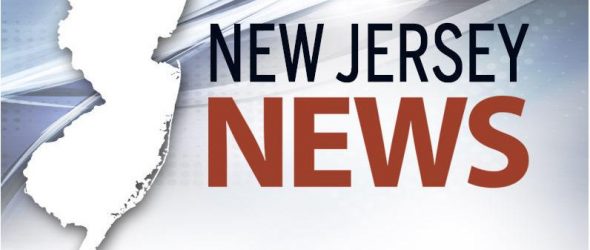Voters will be asked to decide on three ballot questions in November, but only one — about whether to legalize recreational marijuana — has garnered much attention.
The other two ask if New Jersey should extend tax breaks to veterans who didn’t serve during wartime, and if it should delay legislative redistricting if the U.S. Census is late with its data.
This year, legislators expect it to be late because of the COVID-19 pandemic.
“Redistricting is an issue way below most people’s radar, yet it has a really significant impact on our democracy,” said John Froonjian, executive director of the William J. Hughes Center for Public Policy at Stockton University. “It really has major implications for representative government, how representatives are chosen and who is eligible to represent you.”
Data from the latest U.S. Census is used every 10 years to redraw legislative districts, based on population changes and the evolving makeup of communities.
The ballot question asks if the state Constitution should be changed to delay redrawing districts if Census data is not available by Feb. 15 of any year ending in the number one. That would include 2021, when all 120 seats of the Legislature are up for election.
As the party of incumbents in the state legislature — Democrats greatly outnumber Republicans in both the Assembly and Senate — Democrats stand to benefit by keeping the districts the same for another election, Froonjian said.
Sen. Christopher Connors and Assemblyman Brian Rumpf and Assemblywoman DiAnne Gove, all R-Atlantic, Ocean, Burlington, called the delay “a Trenton-power play meant to keep control in the hands of the few and protect the status quo. … Sadly, this would also mean a continuation of policies that make New Jersey even more unaffordable for taxpayers who are already struggling to make ends meet.”
They were among the majority of Republicans who did not vote to put the question on the ballot, and who are opposing its passage.
Census data has been delayed in the past, Froonjian said, and the Legislature delayed the date for the primary election, historically held in June. In 2011, for example, New Jersey delayed the primary three weeks to allow enough time to redraw districts.
“The redistricting process is always hard fought and always fraught with political, racial and social justice implications,” Froonjian said.
A 10-member apportionment commission, made up of five Democrats and five Republicans, comes up with new legislative maps for the state.
“Both sides want to draw boundaries that create districts with just enough of their party to be in the majority in the largest number of districts possible,” Froonjian said. “They always battle to a standstill, and the state Supreme Court Chief Justice appoints the 11th member.”
That person picks which map the state will use.
“In 1990, the Census appointee chose the Republican map and Republicans dominated both houses of Legislature for years to come,” Froonjian said. “The next two, the 11th member chose the Democratic maps, and now Democrats dominate both houses.”
The veterans question on the ballot asks: Do you approve amending the (state) Constitution to give a $250 property tax deduction to veterans who did not serve in times of war … (and) to give a 100% property tax exemption to certain totally disabled veterans who did not serve in times of war?
The Office of Legislative Services estimated that about 53,274 peacetime veterans would qualify for the $250 annual tax deduction, costing the state about $13.6 million in the program’s first year.
Another 6,781 totally disabled peacetime veterans are estimated to live in New Jersey, with about 4,340 paying property taxes, according to the OLS. If each paid the average property tax bill of $8,767, the program would have a $38 million price tag.
Those funds would have to be made up by other nonexempt taxpayers, since the veteran would get a total exemption, according to the OLS.
Bob Frolow, the director of Atlantic County Veterans Affairs, said military service outside of wartime is also important for U.S. security.
The $250 property tax deduction may be a relatively small amount of money, he said, but it shows a level of gratitude to all veterans.
The 100% property tax deduction, which would be available to the surviving spouse of a qualified veteran, would make a bigger difference in someone’s life, he said.
“Whatever money they get for their injuries isn’t much,” Frolow said, so not having to pay a New Jersey property tax bill would be a substantial savings.
In 2019, voters passed a constitutional question extending the property tax breaks to veterans who live in continuing care communities.


